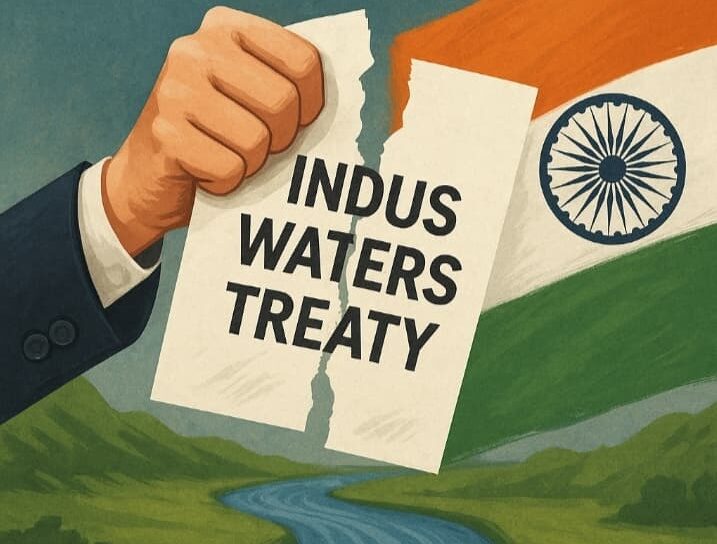Unilateral supranational abrogation of the Indus waters treaty by Indian government: a violation of world trust with contextual effects
Recent developments in India’s unilateral suspension of the Indus waters treaty will clearly become mixed with the local concerns in large measure.
Beyond being a direct challenge to international agreements, however, this is also an excellent case for multilateral diplomacy in the future.
The treaty of IWT is one of the longest-lasting examples of successful water-sharing between countries inhabited by hostile neighbors; it was signed in 1960.
Since then, with World Bank facilitation (currently a guarantor of IWT), the treaty has survived wars, political upheavals, and decades of hostility in both Pakistan and India. Its survival is an endorsement of organized diplomacy, restraint, and a strong belief in international arbitration.
By choosing to reject this legally binding agreement, India sends a chilling message to the rest of the world: that treaties — even those guaranteed by impartial international institutions — are subject to convenience. This raises an existential question: Can any international promise made by India ever be trusted?
The consequences are sweeping and universal. If a nation can simply quit a World Bank-supported treaty, what protection then exists for others involving climate accords, commercial treaties, disarmament, or nuclear agreements? One day it’s a water treaty — and the next it might be the Paris Agreement or the Nuclear Non-Proliferation Treaty.
Historical precedents provide grim lessons. The Nazi-Soviet Pact of 1939 and the U.S. withdrawal from the Anti-Ballistic Missile Treaty in 2002 both had lasting effects: betrayal, instability, and a breakdown in mutual trust. India’s suspension of the IWT risks following that path, not just damaging regional peace but international diplomatic architecture.
The decision undermines India’s reputation as a responsible power at platforms such as the UN, G20, BRICS, and COP meetings. It lends itself to close examination by other countries, particularly those with cross-border water issues in South Asia, Africa, and Latin America. If water can be weaponized by India, then it can be used by others too.
Furthermore, the act also throws into question the future of bilateral diplomacy. If the IWT can be so readily abandoned, what then of the Simla Agreement, the Lahore Declaration, or decades of bilateral mechanisms for trade, intelligence sharing, and humanitarian exchange?
Pakistan, being the lower riparian country, has rights guaranteed by not only the IWT but also under international standards like the 1997 UN Convention on the Law of Non-Navigational Uses of International Watercourses — standards India’s actions brazenly violate.
More than water is at stake. At stake is the principle that the world can count on diplomacy and formal negotiation to resolve even the most stubborn conflicts. If India’s suspension of the IWT passes without challenge, it opens the floodgates for norm erosion everywhere.
This is not merely Pakistan’s problem — it is a moment of reckoning for the world. The world must react — not only to vindicate Pakistan’s rights but to defend the sanctity of international law itself.
In summary, India’s unilateral action is not merely a regional hot spot. It is a seismic test of global order. If the world lets the quiet demise of the Indus Waters Treaty pass, it risks making normal a future in which international agreements are voluntary and trust is disposable. Silence is no longer an option.



